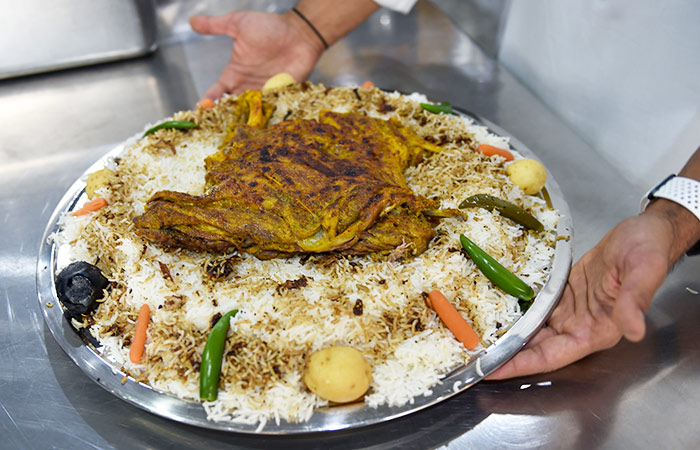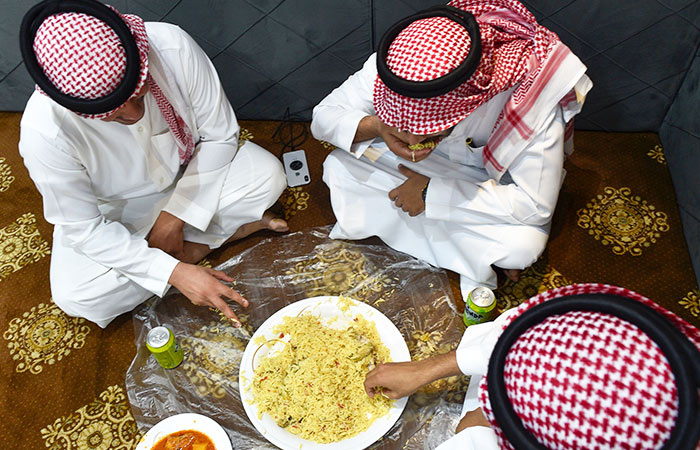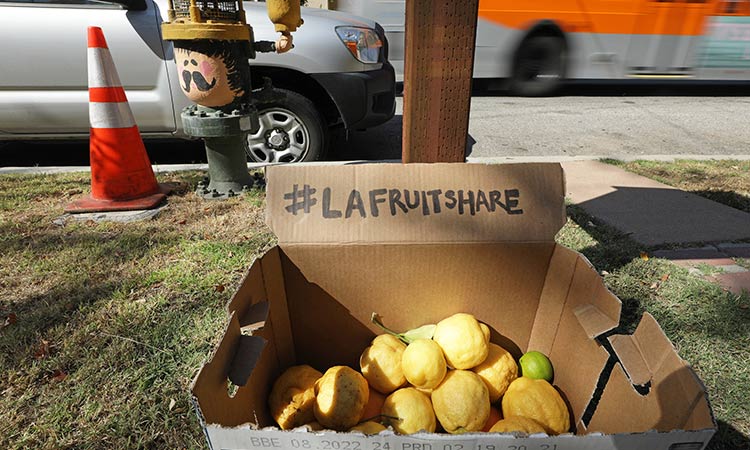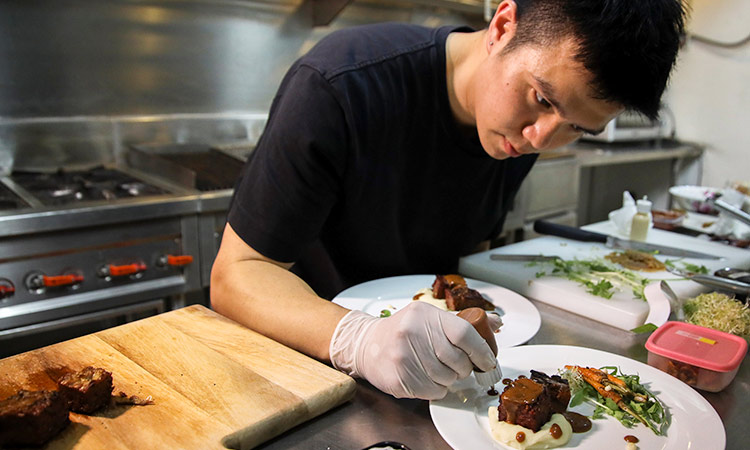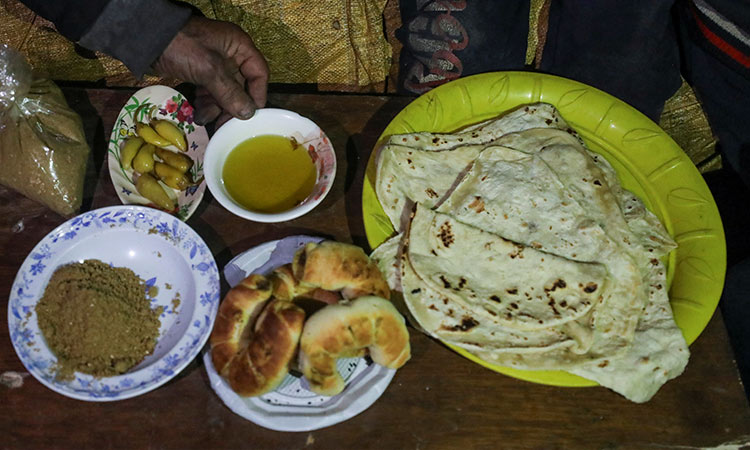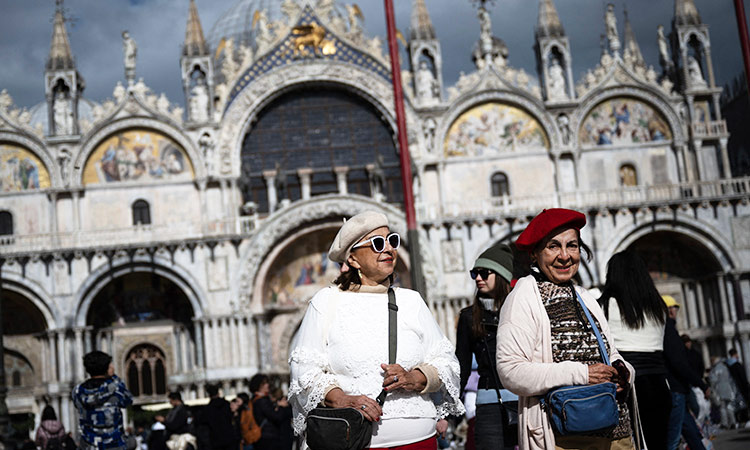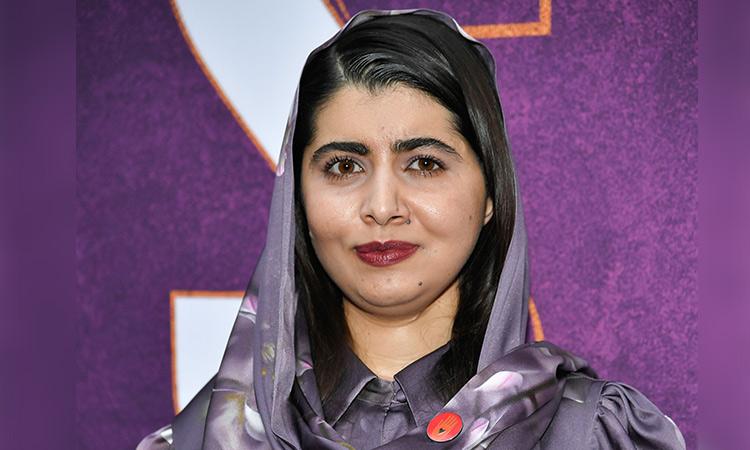Saudis resist ' throwaway' culture of food waste
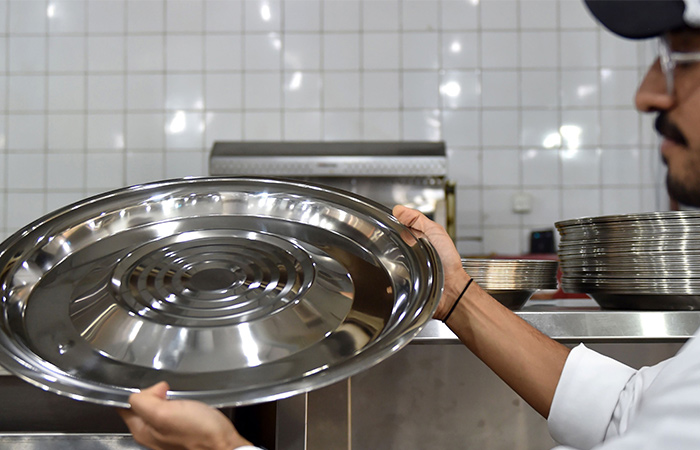
Creator of the Mashal plate displaying it.AFP
Saudi households are known for serving huge portions of food, it is seen as an act of hospitality and generosity. Rice for instance is normally serve on a large oval-shaped platter piled high. Unfortunately, a lot of it is wasted because people rarely reach the middle.
Entrepreneur Mashal Alkharashi is fighting back -- with a rice plate that makes the portion of food appear bigger. With a mound in the centre, the plate minimises the middle area, prompting people to serve less and save more.
"The innovative design, elevated from the middle, reduces waste by 30 percent," Alkharashi told AFP, adding that the plate, adopted in recent years by multiple Saudi restaurants, has saved more than 3,000 tons of rice.
Saudi Kingdom is recorded to have the highest rate of waste globally.
A food order prepared in the Mahsal plate. AFP
The ministry estimates the waste costs Saudi Arabia, which is scrambling to boost state coffers amid low oil prices, around $13 billion annually.
According to the Economist Intelligence Unit, the consumption is far higher than the official estimate: it says the average Saudi wastes as much as 427 kg every year, underscoring what observers call a throwaway consumer culture that undervalues food.
Freedom to eat
The Saudi food Bank, or Etaam, a charity which collects surplus food from hotels and wedding halls and distributes it to the needy, has called on the government to penalise waste.
In a traditional society where social interactions often revolve around food, enormous displays of it connote affluence.
"In just one generation Saudi Arabia went from conditions of scarcity to plenty and, for some, immense wealth," Kristin Diwan, from the Arab Gulf States Institute in Washington, said.
"It's easy to see then how this rather austere culture would project its wealth into the socially acceptable area of hospitality and food."
Saudis having lunch at a restaurant. AFP
Many Saudis are shrugging off stereotypes of being gluttons in a country where local media says more than 40 percent of the population is obese.
"For a long time, the only entertainment for Saudis was restaurants and food."
Shop, eat, pray
"Shop, eat and pray" was long the motto for many Saudis in an age of high oil prices which long supported the government's cradle-to-grave subsidies.
Environmentalists say Saudi Arabia's high demand for meat fuels wildfires in the Amazon rainforests, which make way for livestock. The kingdom is one of the biggest importers of Brazilian beef.
However, many young Saudis are shunning the culture of excess to promote minimalism and meatless diets, among them the chef Almaha Aldossari, well known on social media as "The Bedouin Vegan".
Waste, however, is a relic of the oil boom era, limited not just to food.
It is common to see car engines idling for hours, a habit that stems from an era when oil was cheaper than water.
Water, too, is wasted even as the arid kingdom faces declining resources.
Saudi Arabia consumes 263 litres of water per capita per day, double the daily world average, and the government aims to reduce it to 150 litres by 2030.
"Cultural change is hard but concerns about environmentalism, sustainability, and more healthy living amongst a certain class of Saudis will have some impact," said Diwan.
"These are the seeds of change."
